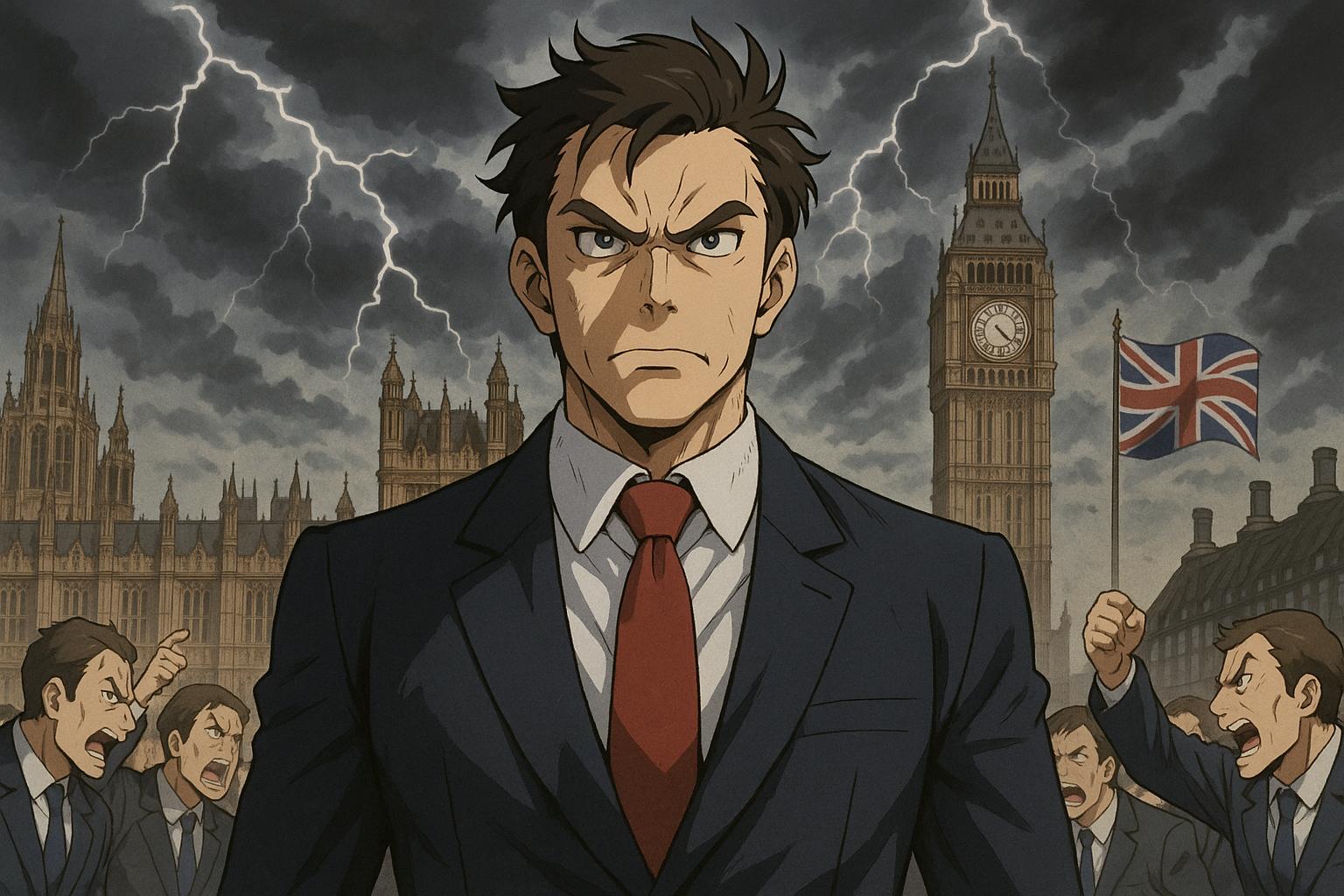Former Reform UK MP Rupert Lowe has launched a scathing attack on his former colleagues, particularly targeting Nigel Farage, whom he claims “must never be prime minister.” This fierce condemnation follows a significant announcement from the Crown Prosecution Service (CPS), which decided not to pursue criminal charges against Lowe over allegations of verbal threats he allegedly made in Parliament last December. The CPS determined that the evidence was insufficient to meet the legal threshold for prosecution.
The incident has escalated into a larger dispute, with Lowe accusing Farage and his associates of attempting to suppress dissent within the party by weaponising the justice system against him. Describing this as a “sinister attempt,” Lowe claimed his political future and personal liberty were at stake. He expressed his concerns, stating that if Farage ever gained control of the British government, he would not hesitate to stifle opposition, paralleling past actions that have raised eyebrows about Farage's leadership style.
Malcolm McHaffie, head of the CPS special crime division, confirmed that after a thorough review of the evidence, no realistic prospect of conviction existed. He noted that the CPS’s role is to provide fair and impartial assessments, rather than to determine guilt outright. In recent months, Lowe has become increasingly vocal about internal tensions within Reform UK, which has seen a spike in popularity despite inter-party conflicts—winning 31% of the local council vote and securing 677 seats in recent elections.
Lowe's departure marks a significant moment in Reform UK's history, echoing the fractured trajectories of previous parties led by Farage, such as Ukip and the Brexit Party. With members often leaving due to ideological rifts, Lowe’s critique adds weight to a narrative that suggests persistent instability under Farage’s leadership. According to reports, Lowe has faced internal accusations of threats and bullying, with allegations stemming from interactions with party chair Zia Yusuf and parliamentary staff, further complicating the party's precarious situation.
In a direct appeal to Reform voters, Lowe urged them to reconsider their loyalty to a leadership he sees as unworthy. He proclaimed his intent to lead a political movement that aligns more closely with values of professionalism, honesty, and integrity. This rift further complicates Farage’s ambitions, as public opinion remains divided on his ability to deliver on promises while also addressing internal dissent from party members like Lowe.
This ongoing drama within Reform UK reflects broader tensions in British politics, where populist figures like Farage have historically thrived amid controversy yet often leave behind fractured factions. As the landscape evolves, the implications for both Lowe and Farage bear watching—not just for their immediate political futures, but for the very fabric of a party at a crossroads.
Reference Map
- Paragraphs 1, 2, 3, 4
- Paragraphs 1, 5
- Paragraphs 3, 5
- Paragraphs 2, 4, 5
- Paragraph 3
- Paragraph 3
Source: Noah Wire Services
